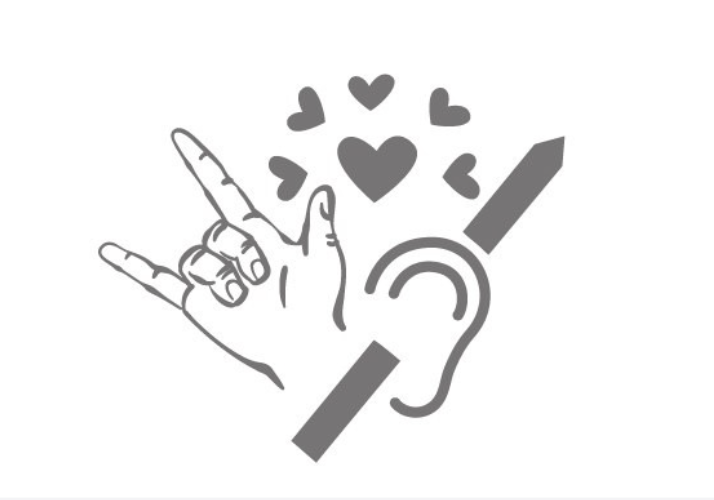The coronavirus pandemic has taken over everyone’s lives and continues to affect those around the world. Mask mandates, recommended by the Centers for Disease Control and Prevention (CDC) and sometimes required by businesses, have flooded the United States. For those who are hard of hearing or completely deaf, which constitutes 1 in every 20 American, their lives become increasingly more difficult. Due to added communication barriers from the required masks, those with hearing impairments who rely on lip-reading find themselves in a tough situation.
Stacey Dieterle of Ellington, CT said she didn’t even realize how bad her hearing was until the world became masked.
The mother of two experienced slow progression hearing loss throughout her 40’s. A hereditary condition, Dieterle’s mother began losing her hearing at the same age, and before her, Dieterle’s grandfather. According to data from the CDC, “as women age, they may have more difficulty hearing a lower frequencies than men do.”
However, for Dieterle the opposite is true. She experiences “cookie bite” hearing – low frequencies are heard, but higher frequencies are lost.
“It was like the world went into mumbles,” Dieterle said. “I had been reading lips and now my coping mechanism was gone. It was difficult. Now, I have more trouble communicating with people.”
When going out to run errands alone, Dieterle said others are usually cooperative when learning of her hearing loss and she asks them to repeat what they said. However, getting the mask on in the first place almost always causes trouble. Dieterle said getting them on and off without knocking off her hearing aids is always a trick.
Bridget Roguz from Longmeadow, Massachusetts, was born with severe hearing loss and relies solely on lip-reading to adapt in the hearing world.
The special education teacher, who also communicates orally, said the masks took away her independence by removing all visual facial cues.
“I have been surrounded by hearing people for many years. I felt I fit in the hearing world. I am outgoing, happy and felt connected with everyone,” Roguz said of life pre-pandemic. “Then, COVID hit, my life turned upside down. I didn’t know how I was supposed to go forward. I felt paralyzed and shut out from people.”
Others in the deaf community agreed.
“It was tough,” Janet Mayo said.
Mayo was born deaf due to her mother having the contagious disease Rubella when pregnant with her. She was taught to speak and lip read until she was 15 and learned American Sign Language (ASL). But above all, Mayo said lip-reading is her number one form of communication.
Whilst out and about by herself, Mayo said she asks people to write things down for her in order to communicate and “they are usually happy to oblige.”
Roguz also expressed similar sentiments, stating that she prefers when others type on their phone what they’d like to say.
But she expressed that because people always want things done quickly, she tries to be flexible by bringing her good ear, her hearing aid side, towards them. The process continues with repeating what they said in hopes of getting it right the first time.
Some of those within the hearing community have attempted to lessen the communication barriers between themselves and the deaf community by investing in clear masks. However, Roguz said that lip-reading, even with the clear masks, is nearly impossible.
“It fogged, light glared on the plastic and the clarity of words was still unclear to understand,” Roguz said. “I had to focus with every ounce of my hearing when someone talks with the [clear] masks on. I was beyond exhausted by the end of the day.”
Mayo simply gives others a choice of pulling down their masks if they want to ask her a question while she is out.
Masks continue to be required indoors in most places due to the increasing findings of new COVID-19 variants.
Dieterle reiterated that while she understands that face masks have some unintended consequences for the hearing impaired, she feels the benefits outweigh the challenges.
“I would rather deal with masks than the alternative,” Dieterle said.
Mayo asks the hearing community to be more patient and understanding of the deaf and hard of hearing community.
“There are some deaf people who are not very good in lip-reading or reading their written English,” Mayo said.
Dismissal and being ignored are a part of day-to-day life for those with hearing impairment. Especially with the new addition of the mask mandate due to COVID-19 pandemic, deaf people say being patient and an advocate for their community can lessen the anxiety they experience every day.







